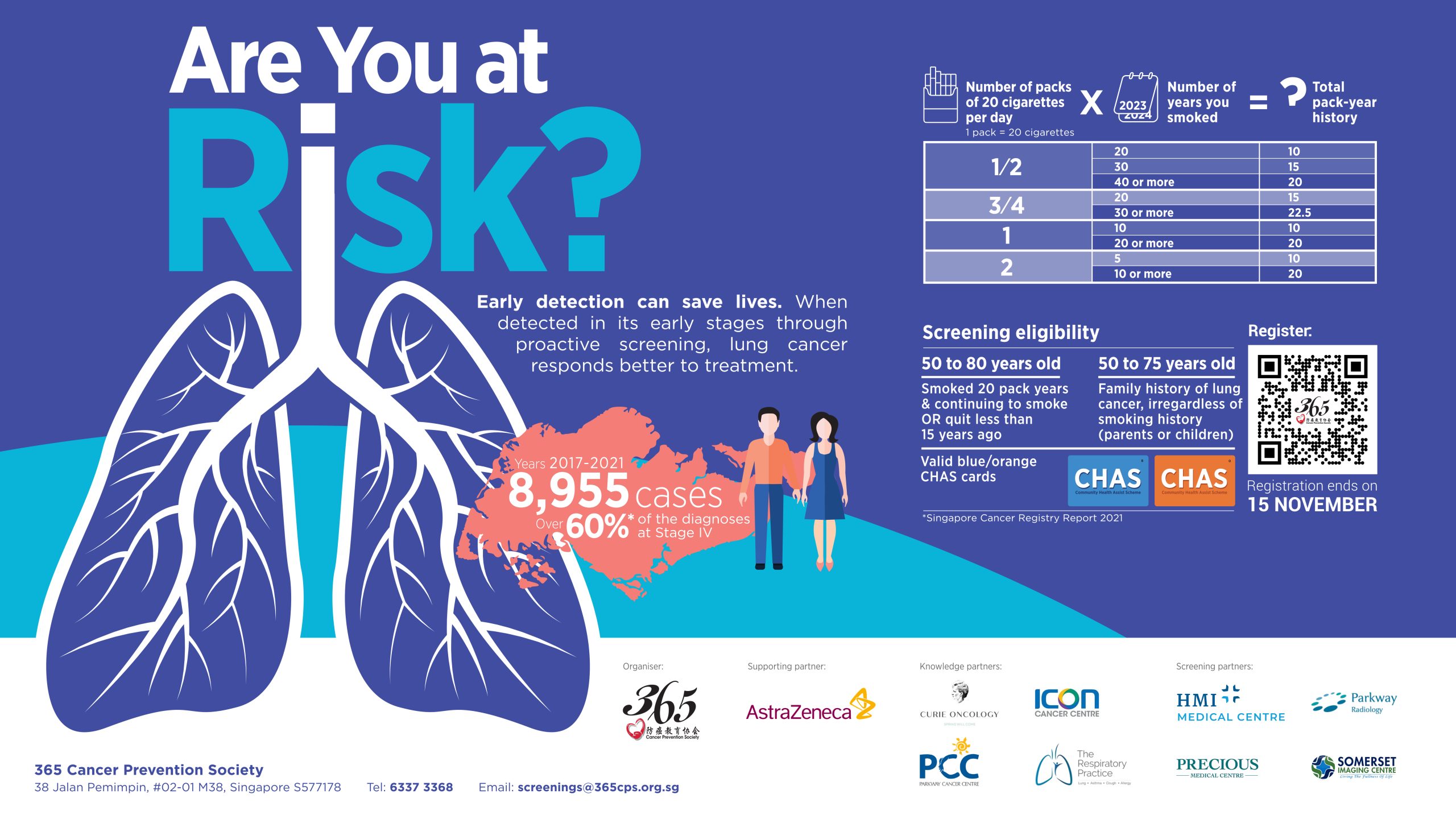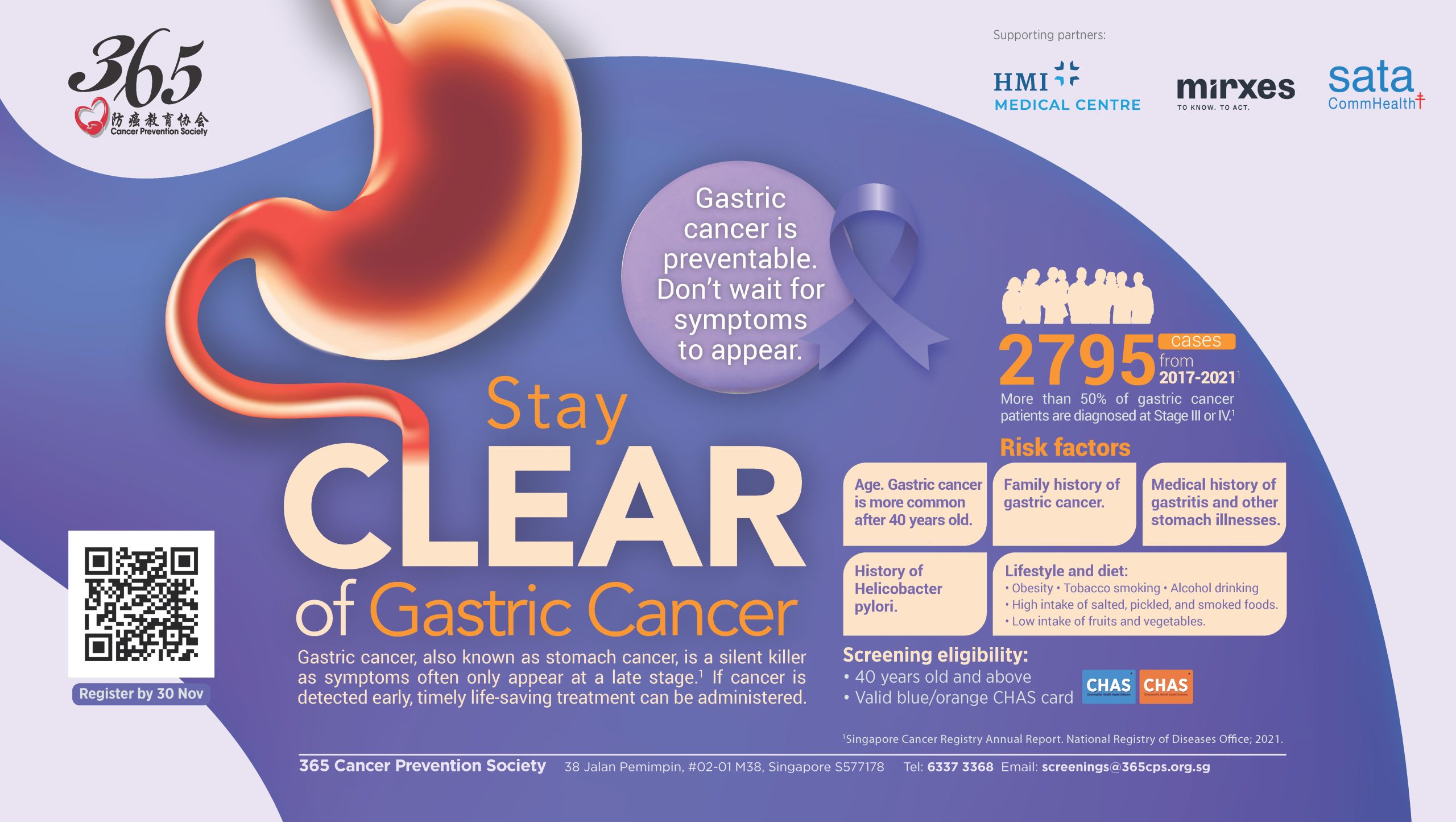Screening Campaigns
Why are screenings important?
Screening is the first step to safeguarding your health. It helps to detect diseases in individuals who do not show any signs and symptoms. It is crucial to undergo regular screenings to ensure that any onset of diseases are detected early. Timely intervention paves the way for early treatment, which will benefit greatly in treatment results and recovery. Prevention is better than cure, take charge of your health and sign up for our sponsored screenings today.
Screenings that we offer
| Screening/Cancer Type | Details | Frequency |
| Prostate Cancer Screening | A blood test will be done to measure the level of Prostate-Specific Antigen (PSA), a protein produced by normal, as well as malignant, cells of the prostate gland. | It would be helpful for men age 50 years and above with a family history of prostate cancer to do a PSA test once every few years. |
| Gastric Cancer Screening | Gastroclear is a blood test that can accurately detect gastric cancer. | Individuals (especially men) age 40 years and above with a family history of gastric cancer or a medical history of stomach illnesses. |
| Lung Cancer Screening | A Low-Dose Computerised Tomography (LDCT) scan is recommended for early lung cancer detection. | Individuals age 50-80 years old with smoking history of more than 20 pack years or family history of lung cancer (parents/child). |
| Fatty Liver Disease Screening | A blood test will be done to conduct a risk level assessment. | High-risk patients with obesity or metabolic syndrome should be routinely screened for fatty liver disease. |
| Breast Cancer Screening | Mammogram is used in the screening for breast cancer, an x-ray of the breast is taken to detect masses or calcifications, which are early signs of breast cancer. | Women aged 40-49 are recommended to go for mammogram screenings annually, and women aged 50 and above should go for screenings once every two years. |
| Cervical Cancer Screening | Pap Smear is a procedure that screens for cervical cancer. It is where cervix cells are gently removed to be analysed under the microscope to detect potentially cancerous cells. | Women aged 21-65 should undergo pap smear tests once every three years |
| Colorectal Cancer Screening | Colonoscopy is a procedure that uses a long flexible tube equipped with a camera to look at the inner walls of the colon and rectum. It detects the polyp growth in the colon or rectum, which can eventually become cancerous. | Men and women over 50 should have a colonoscopy at least once every 10 years. But if the individual has a higher risk of developing cancer, doctors may advise going once every five years. |
While screenings can help with early detection, it is important to understand that there is a chance of false results.
365 Cancer Prevention Society provides sponsored cancer screening for eligible individuals.
Screening Campaigns
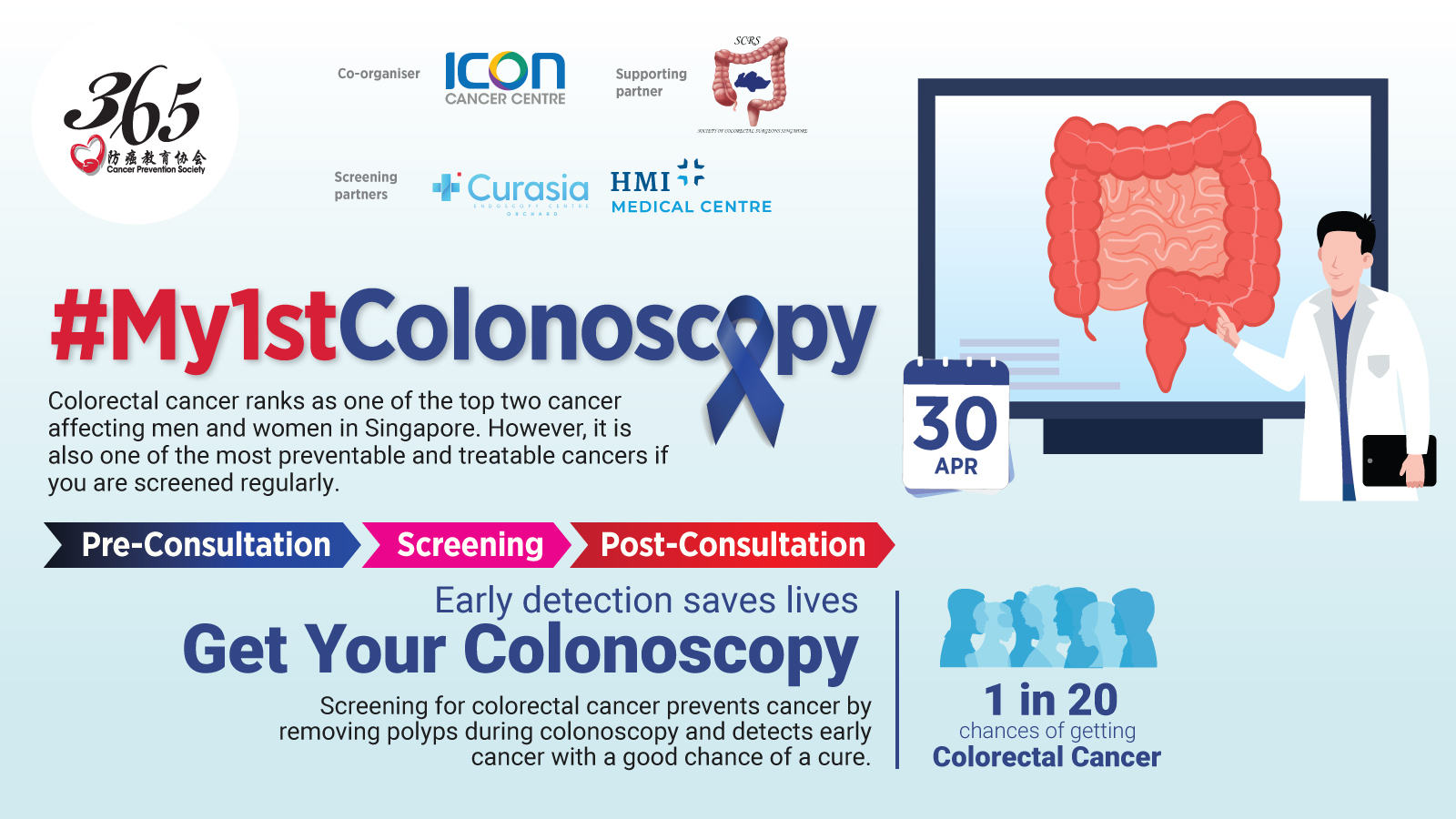
#My1stColonoscopy
Colorectal Cancer Screening Campaign
Registration Temporarily Paused
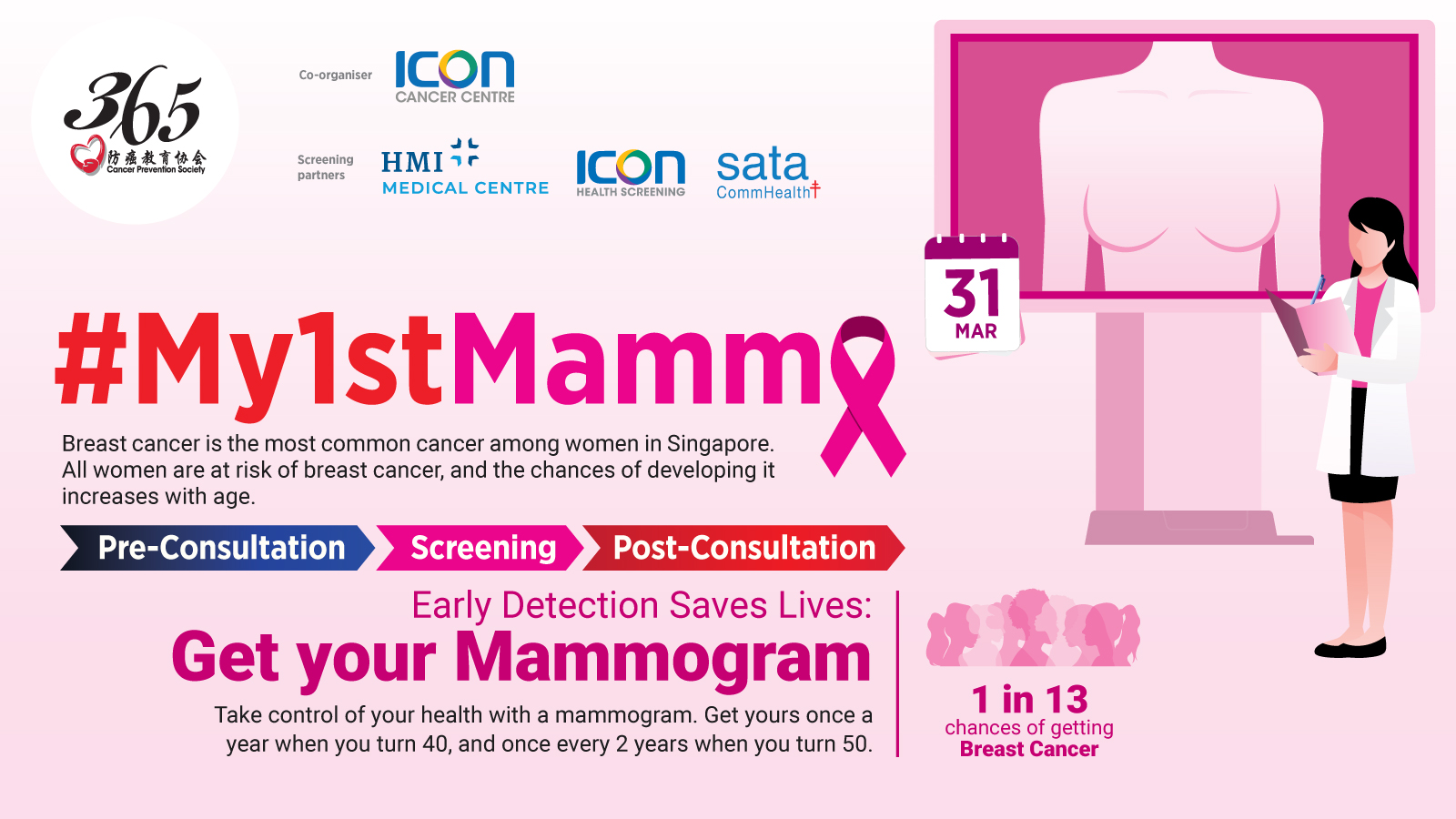
#My1stMammo
Breast Cancer Screening Campaign
Registration Closed
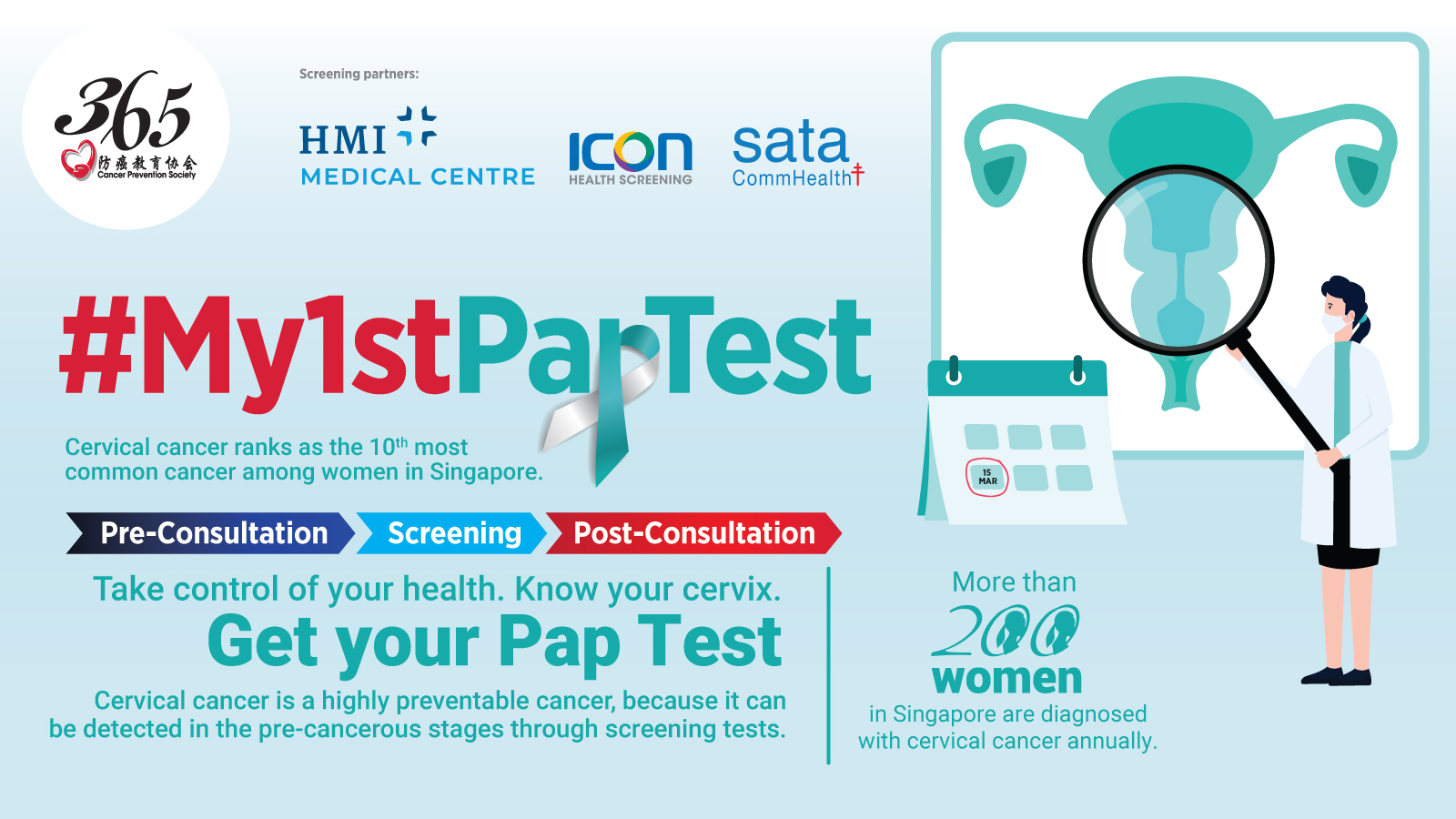
#My1stPapTest
Cervical Cancer Screening Campaign
Registration Closed

#My1stProstateCheck
Prostate Cancer Screening Campaign
Registration Closed

